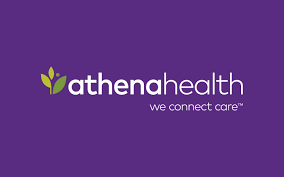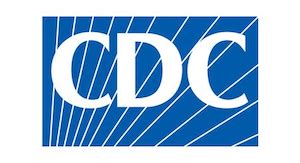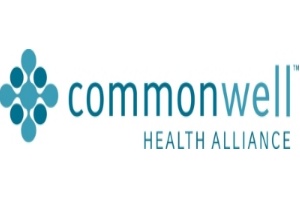data sharing
See the following -
Are Electronic Medical Records Worth the Costs of Implementation?
All of these potential advances could greatly improve health outcomes and help bend the health care cost curve. Unfortunately, these advances come with significant costs, both financially and in terms of personal privacy. Going forward, policymakers should work to ensure limited resources are used in a more cost-effective manner. Changes to EMR policy have been part of recent legislative and executive action.
- Login to post comments
ASTHO Releases Two New Reports On IIS
 In March 2023 the Association of State and Territorial Health Officers (ASTHO) released two environmental scans related to public health data and systems funded by a grant from ONC. The first report, Immunization Information Systems, and Health Information Exchanges: An Environmental Scan of Factors Influencing Data Sharing and Opportunities to Advance Population Health, provides a review of the state of both IIS and HIEs – as well as their points of intersection and support – especially as they were affected by the COVID-19 pandemic. ASTHO used a mixture of secondary source review (including our white paper on this topic from nearly ten years ago) and current interviews and focus groups to inform us about this complex and fluid topic.
In March 2023 the Association of State and Territorial Health Officers (ASTHO) released two environmental scans related to public health data and systems funded by a grant from ONC. The first report, Immunization Information Systems, and Health Information Exchanges: An Environmental Scan of Factors Influencing Data Sharing and Opportunities to Advance Population Health, provides a review of the state of both IIS and HIEs – as well as their points of intersection and support – especially as they were affected by the COVID-19 pandemic. ASTHO used a mixture of secondary source review (including our white paper on this topic from nearly ten years ago) and current interviews and focus groups to inform us about this complex and fluid topic.
- Login to post comments
AthenaHealth's Plan To Fix Health Care Hinges On Tiny Hospitals
 Edmund Billings spends about three weeks out of the month living out of a suitcase. He racked up 20,000 miles on the road in the past nine months, while driving to some of the most rural and remote parts of the country. Billings is a traveling salesman of sorts, but his business isn't vacuum cleaners or encyclopedias. It's health software. Billings is the associate chief medical officer for acute care at AthenaHealth, an IT company with a market cap of more than $5 billion that provides software and mobile apps for patient care and billing, including a cloud-based electronic health record...
Edmund Billings spends about three weeks out of the month living out of a suitcase. He racked up 20,000 miles on the road in the past nine months, while driving to some of the most rural and remote parts of the country. Billings is a traveling salesman of sorts, but his business isn't vacuum cleaners or encyclopedias. It's health software. Billings is the associate chief medical officer for acute care at AthenaHealth, an IT company with a market cap of more than $5 billion that provides software and mobile apps for patient care and billing, including a cloud-based electronic health record...
- Login to post comments
Athenahealth’s Jonathan Bush: If I Were a Hospital CIO…
Jonathan Bush, the forever loquacious, occasionally foul-mouthed and mostly unscripted CEO of cloud EHR company athenahealth, got the audience cracking up at the annual Stanford Medicine X conference in Palo Alto, California when he took the stage, declaring: “Shit, I have nothing visceral or profound for you.” He was referring to the unenviable position of having to follow the moving presentations of patients and artists that preceded his keynote on Saturday...
- Login to post comments
Australia's Digital Health Strategy Gets the Nod Without Data Interoperability Controls
My Health Record, the Australian government's e-health record system, has been officially given the green light from the Council of Australian Governments Health Council to automatically sign citizens up to the service, allowing them to opt-out if they choose. By 2018, all Australians will have a My Health Record and by 2022, all healthcare providers will be able to contribute to and use health information in My Health Record on behalf of their patients. They will also be able to communicate with other healthcare providers on the clinical status of joint patients via the digital platform...
- Login to post comments
Biden Announces Major Open Initiatives At Cancer Moonshot Summit
 Today, the Cancer Moonshot is hosting a summit at Howard University, in Washington, D.C. as part of a national day of action that also includes more than 270 events in communities across the United States. Vice President Joe Biden will join over 350 researchers, oncologists and other care providers, data and technology experts, patients, families, and patient advocates, among others, will come together at Howard University. They will be joined by more than 6,000 individuals at events in all 50 states, Washington, D.C., Puerto Rico, and Guam. This is the first time a group this expansive and diverse will meet under a government charge is to double the rate of progress in our understanding, prevention, diagnosis, treatment, and care of cancer...
Today, the Cancer Moonshot is hosting a summit at Howard University, in Washington, D.C. as part of a national day of action that also includes more than 270 events in communities across the United States. Vice President Joe Biden will join over 350 researchers, oncologists and other care providers, data and technology experts, patients, families, and patient advocates, among others, will come together at Howard University. They will be joined by more than 6,000 individuals at events in all 50 states, Washington, D.C., Puerto Rico, and Guam. This is the first time a group this expansive and diverse will meet under a government charge is to double the rate of progress in our understanding, prevention, diagnosis, treatment, and care of cancer...
- Login to post comments
Can Public And Private HIEs Get Along?
Public health information exchanges (HIEs) have expressed concerns about compatibility and sustainability as the number of private HIEs continues to rise, according to eHealth Initiative's 12th Annual HIE Survey. Read More »
- Login to post comments
Carequality Launches Significant Industry-Wide Effort Focused On Achieving Interoperability Between Existing And Emerging HIE Networks
Healtheway today announced the formation of Carequality (pronounced “care-e-quality”), a new initiative dedicated to accelerating progress in health data exchange among multi-platform networks, healthcare providers, electronic health record (EHR) vendors and health information exchange (HIE) vendors. Carequality is an open, transparent and inclusive industry-driven effort. It will convene stakeholders and facilitate industry consensus to develop and maintain a standards-based interoperability framework that enables information exchange between and among networks.
Read More »
- Login to post comments
CDC Stands Up New Disease Forecasting Center - To Use Open Source Software and APIs to Expand Data Interoperability
 Today, the Centers for Disease Control and Prevention (CDC) is announcing a new center designed to advance the use of forecasting and outbreak analytics in public health decision making. Once established, the Center for Forecasting and Outbreak Analytics will bring together next-generation public health data, expert disease modelers, public health emergency responders, and high-quality communications, to meet the needs of decision makers. The new center will accelerate access to and use of data for public health decision-makers who need information to mitigate the effects of disease threats, such as social and economic disruption.
Today, the Centers for Disease Control and Prevention (CDC) is announcing a new center designed to advance the use of forecasting and outbreak analytics in public health decision making. Once established, the Center for Forecasting and Outbreak Analytics will bring together next-generation public health data, expert disease modelers, public health emergency responders, and high-quality communications, to meet the needs of decision makers. The new center will accelerate access to and use of data for public health decision-makers who need information to mitigate the effects of disease threats, such as social and economic disruption.
- Login to post comments
Cerner, McKesson Lead Alliance To Let Doctors Share Data
Cerner Corp. (CERN) and four rival providers of electronic medical records said they will ease barriers preventing doctors and hospitals from sharing data, a potential breakthrough in the effort to get U.S. physicians to better coordinate patient care. Read More »
- Login to post comments
CMS: Databases Can Be Used For Disaster Planning To Aid Vulnerable Populations
The Centers for Medicare & Medicaid Services will allow health information from eight databases to be used to identify vulnerable people who might need help during an emergency. Read More »
- Login to post comments
Coalition Calls For Action Against EHRs That Block Interoperability
The Health IT Now Coalition is calling on HHS to decertify electronic health record systems that require extra modules or additional costs to share data, Politico's "Morning eHealth" reports...
- Login to post comments
CommonWell Gives Patients Access to Records
 CommonWell Health Alliance has launched a new program that is expected to give patients the capability of more easily accessing their health records. The initiative will begin with six electronic health record vendors: Aprima Medical Software, athenahealth, Cerner, Evident, Modernizing Medicine and RelayHealth. Two standalone patient portal vendors, Integrated Data Services and MediPortal, will offer an app enabling patients to access their records by year-end, says Jitin Asnaani...
CommonWell Health Alliance has launched a new program that is expected to give patients the capability of more easily accessing their health records. The initiative will begin with six electronic health record vendors: Aprima Medical Software, athenahealth, Cerner, Evident, Modernizing Medicine and RelayHealth. Two standalone patient portal vendors, Integrated Data Services and MediPortal, will offer an app enabling patients to access their records by year-end, says Jitin Asnaani...
- Login to post comments
Could There Be a Blockchain Solution to High Prescription Drug Prices?
 Prescription drugs are one of the biggest contributors to soaring healthcare costs in the U.S. And for both individuals and families, particularly where multiple prescriptions are needed, drug expenses can quickly escalate to thousands of dollars. According to a report from the Kaiser Family Foundation, 8 in 10 Americans would like the government to negotiate prices for those on Medicare. Additionally, Americans want limits set on the amount drug companies can charge for high-cost drugs, such as those to treat cancer...
Prescription drugs are one of the biggest contributors to soaring healthcare costs in the U.S. And for both individuals and families, particularly where multiple prescriptions are needed, drug expenses can quickly escalate to thousands of dollars. According to a report from the Kaiser Family Foundation, 8 in 10 Americans would like the government to negotiate prices for those on Medicare. Additionally, Americans want limits set on the amount drug companies can charge for high-cost drugs, such as those to treat cancer...
- Login to post comments
Data Exchange Rises in Importance for Urgent Care Providers
As the healthcare industry transitions to value-based care, urgent care companies and health systems are forging formal business partnerships and then facilitating those relationships through the exchange of electronic patient data. The partnerships have advantages for both parties. Health systems want to add urgent care to their patient care continuum, while urgent care companies want to be included in local provider networks...
- Login to post comments